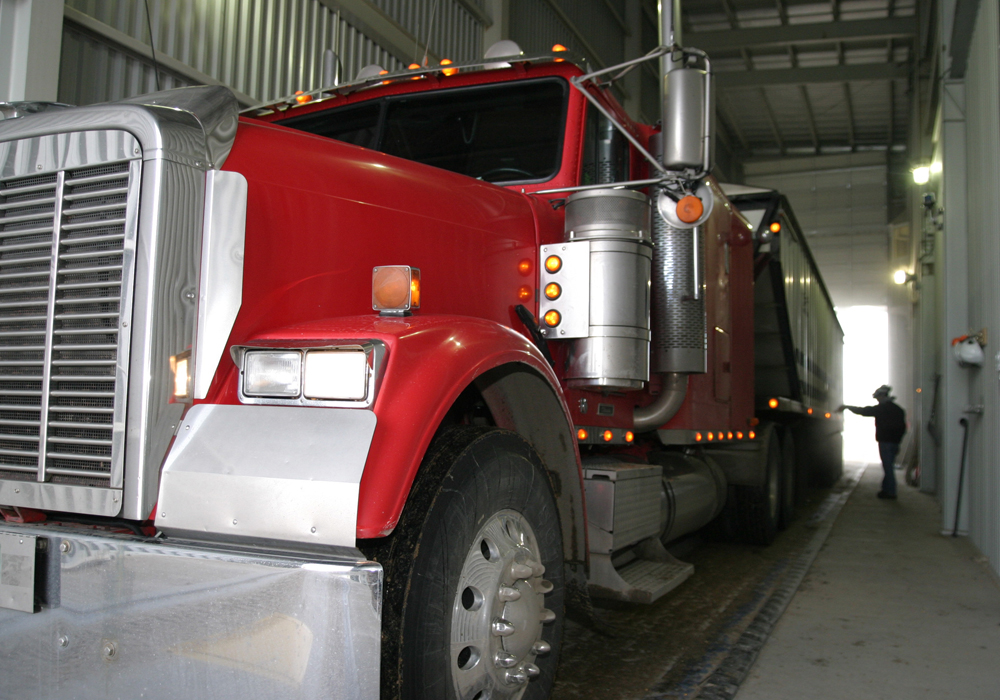More producer groups are now urging the Alberta government to hit pause on implementing mandatory training for new Class 1 and 2 trucker licenses.
Team Alberta, representing the province’s canola, wheat, barley and pulse commissions, said today that it wants the government to extend the March 1 training deadline, arguing it could hinder farmers’ abilities to hire seasonal workers before seeding begins.
“Team Alberta supports safer and more highly skilled drivers operating on our roads and highways,” Hannah Konschuh, Alberta Wheat Commission vice-chair, said in a news release.
Read Also

August rain welcome, but offered limited relief
Increased precipitation in August aids farmers prior to harvest in southern prairies of Canada.
“But the timelines and lack of consultation with farmers would make it virtually impossible to comply with new regulations by the deadline. Additionally, there doesn’t seem to have been an increase in the training capacity to accommodate this big change.”
The new rules would require all new drivers to take mandatory training of at least 125 hours for Class 1 and 2 licenses. Class 1 licenses allow people to drive semi-tractor trailers while Class 2s are for commercial buses.
The growing calls to extend the deadline follow the Alberta Canola Producers Commission annual general meeting Jan. 30, where delegates voted in favour of requesting an extension.
The province is implementing the rules to bolster safety on highways. The Humboldt Broncos bus crash tragedy in Saskatchewan last spring pushed legislators to make changes sooner.
In an email Jan. 31, the province indicated it is sticking to the March 1 deadline.
It said farmers will largely be unaffected by the changes because drivers of Class 3 vehicles won’t need mandatory training.
It said 82 percent of Alberta’s farm vehicles wouldn’t need to comply with the changes. Moreover, it said 24,693 of the 137,453 farm registered vehicles in Alberta are captured by the mandatory training rules.
Class 3 vehicles have a single motor with three or more axles, which is allowed to tow a trailer with one or more axles if the trailer is not equipped with an airbrake.
People with Class 3s can’t drive a vehicle that can seat more than 15 people including the driver, and can’t transport passengers for hire.
“We’ve worked with our industry stakeholders to make these changes with their support and we are pleased to be moving forward to put them in place,” John Archer, a spokesperson for the transportation ministry, said in an email.
However, Team Alberta members believe training programs will be difficult to get into for new drivers, given the province is re-vamping the system.
Therefore, they argue, the regulations will make access to labour more difficult. It’s already hard enough to get skilled labour in agriculture, they said.
“We ask the government to work with us so we can seed our crops and comply with necessary training requirements,” Alberta Pulse Growers chair Don Shepert said in the news release.
Saskatchewan, which requires mandatory training rules for new Class 1s starting March 15, is exempting farmers.
Farmers in that province will need to get an F endorsement on their existing driver’s licenses and will only be allowed to operate within Saskatchewan borders. The F endorsement isn’t required if they already have a Class 1.
Ontario’s mandatory training program applies to everyone. Manitoba is currently consulting for input on its standards.
Contact jeremy.simes@producer.com
















